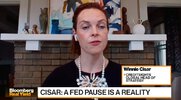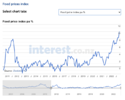over9k
So I didn't tell my wife, but I...
- Joined
- 12 June 2020
- Posts
- 5,524
- Reactions
- 8,091
China's reducing some of its covid curbs. They're starting to break.
Remember that we're heading into winter in the northern hemisphere too - reduced energy demand but cold wrecking russian supply.
Remember that we're heading into winter in the northern hemisphere too - reduced energy demand but cold wrecking russian supply.




